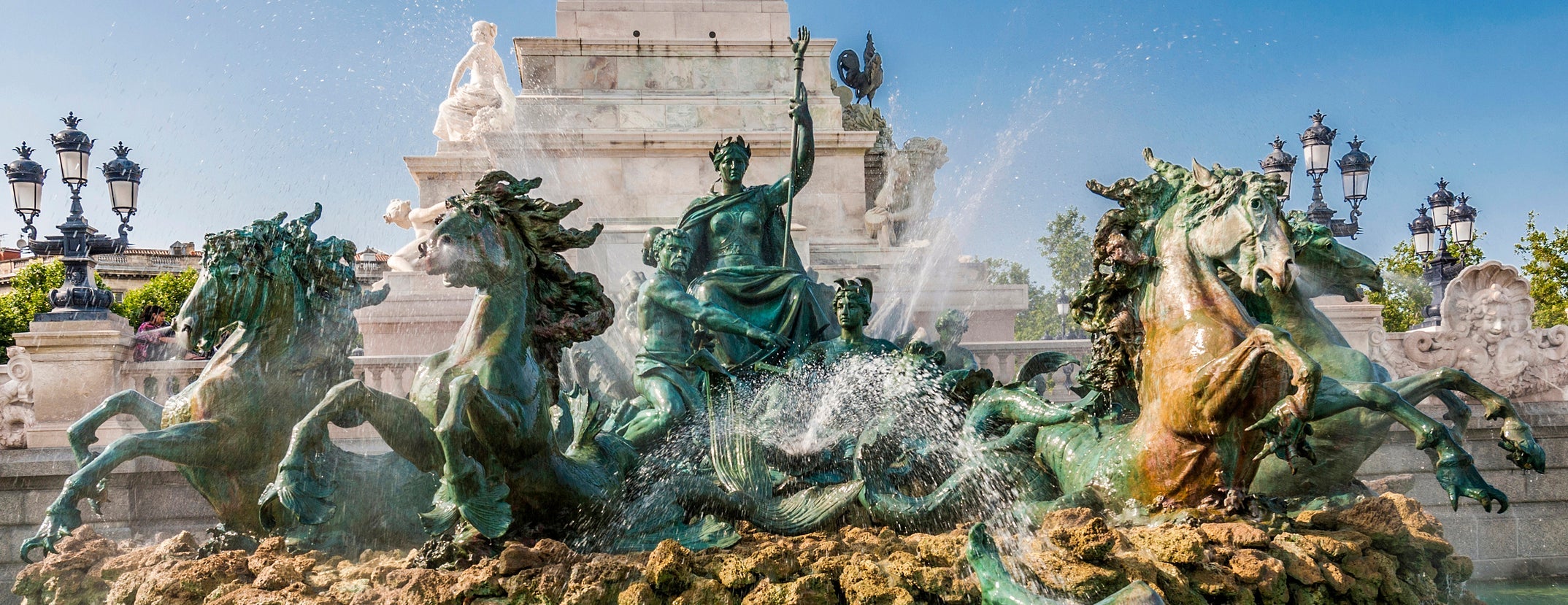7 reasons Bordeaux is the French city to visit now
Update: Some offers mentioned below are no longer available. View the current offers here.
When dreaming of France, do you picture yourself sitting in an outdoor cafe, aperitif in hand, watching crowds stroll a riverfront promenade lined with magnificent 18th-century buildings? If so, you might think Paris is the only place to realize that vision. But on a recent trip to Bordeaux, I discovered that this formerly sleepy port city offers all the ingredients of the perfect French idyll, along with the allure of France's most famous wine region that surrounds it.
Related: The best starter travel credit cards
Bordeaux is easy to get to
Three years ago saw the launch of super-fast train service from Paris, making it possible to get to Bordeaux in just two hours. This makes Bordeaux an easy hop for wallet-savvy travelers flying to France on points with Air France's Flying Blue, or lured by low fares and new routes from American, United and others. (See TPG's complete guide to getting to Paris on points and miles.) Bordeaux is also on the list to receive new direct train service from London, which will prove even more transformative.
Related: Best airline credit cards
Once you arrive, Bordeaux is easy to get around, too. I used my dependable Capital One Venture Rewards Credit Card to pick up e-bikes and ride along the promenade. Bike hubs are numerous around town and scooters are available as well. Bordeaux has also expanded metro rail service, and an aboveground train loops through the city center and along the river, making frequent stops so you can hop on and hop off.
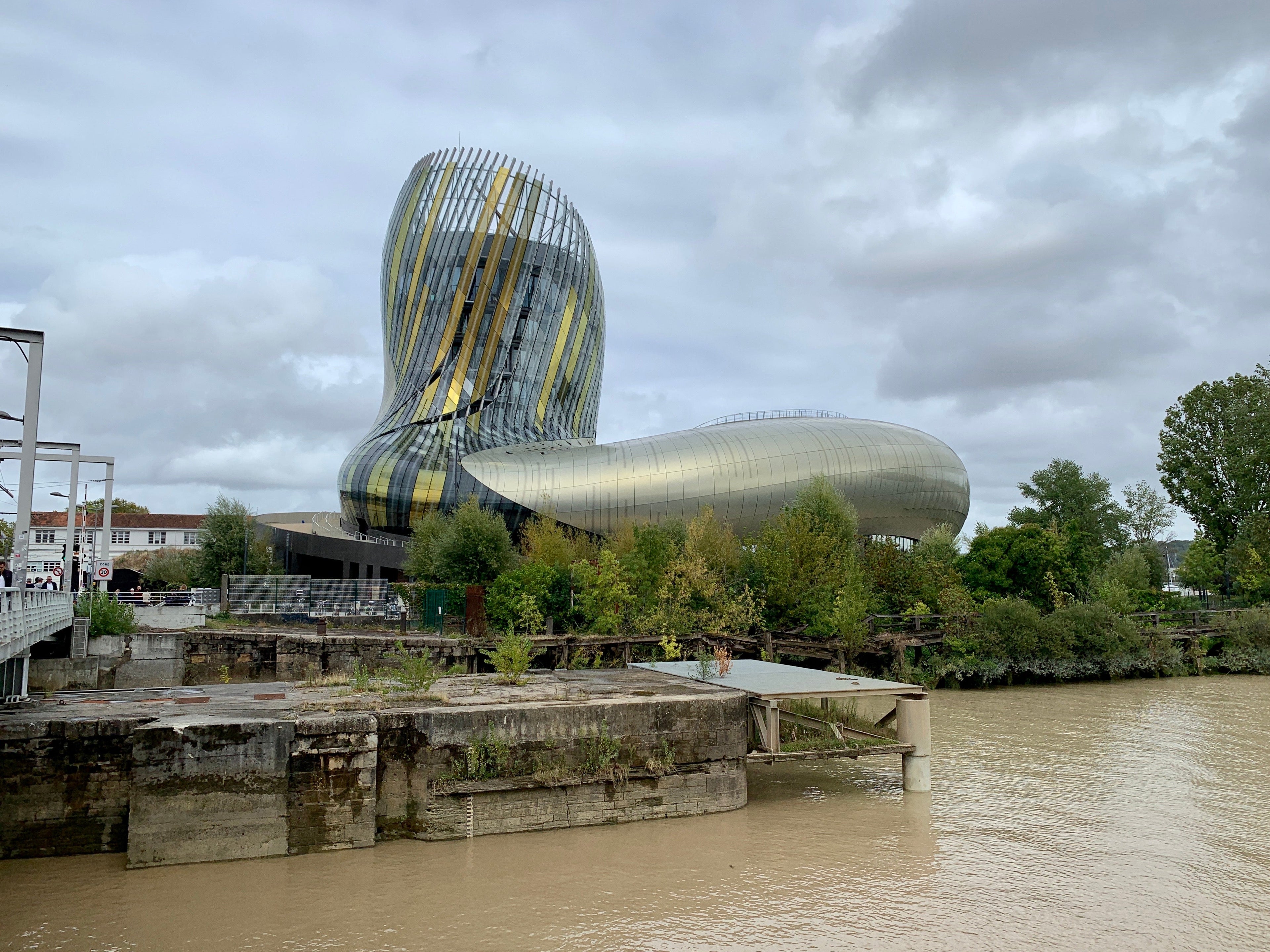
Here are some of the top reasons Bordeaux is becoming one of France's fastest-rising destinations.
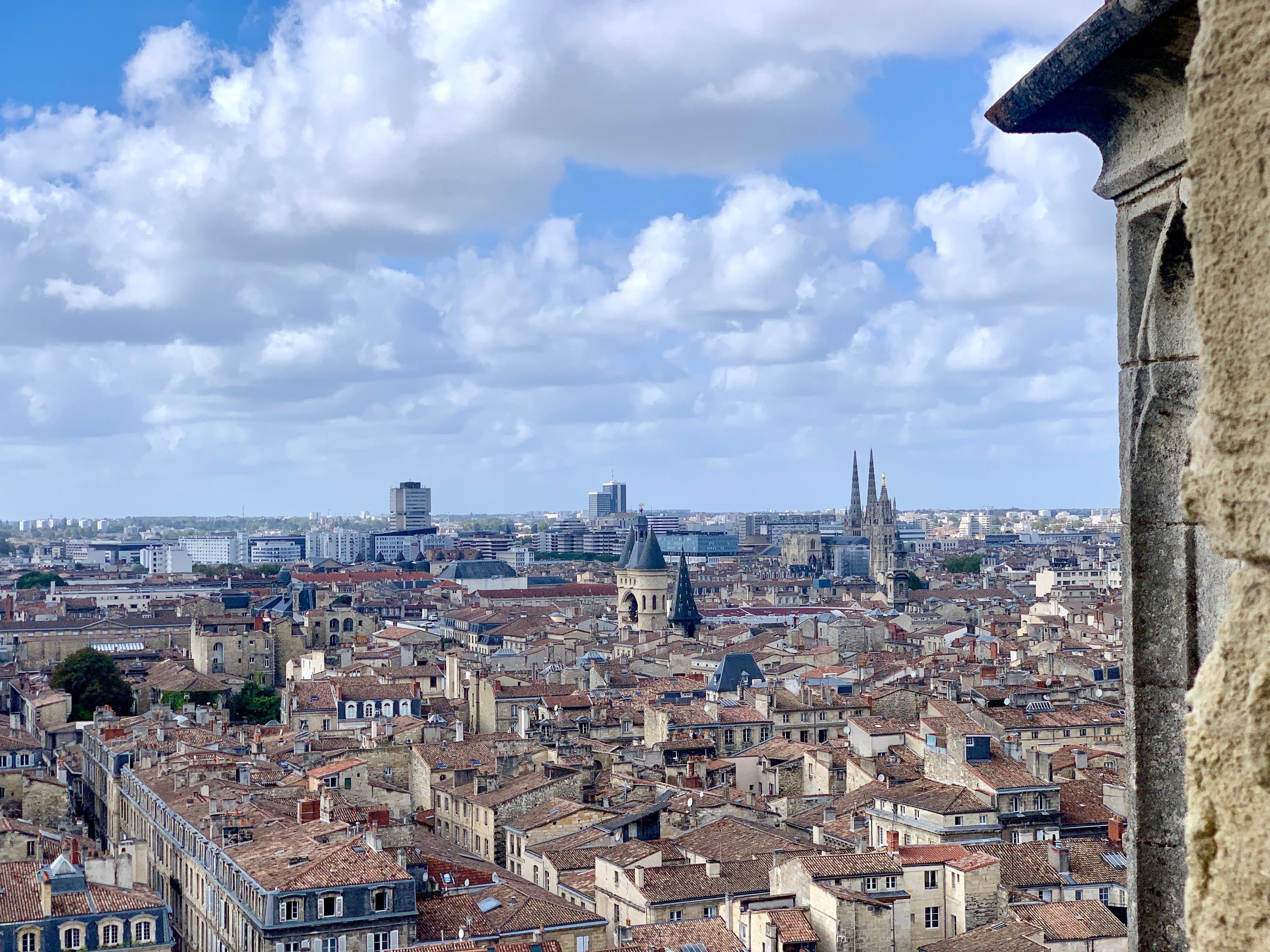
Bordeaux is France's most consistently beautiful city
Beauty is easy to come by in France, but Bordeaux has a special glow -- quite literally. The historic city center was built almost entirely from a single type of ivory-colored limestone quarried in the nearby countryside. The limestone shines brilliantly in the sun and glows gold in lamplight. Sadly, by the 1980s Bordeaux's beauty had been badly dimmed. Limestone is notoriously porous, and centuries of industry had coated its historic buildings in a layer of sooty grime. But starting in the mid-2000s, a monumental civic restoration project was launched to surface clean the entire city center, building by building, and the results are spectacular.
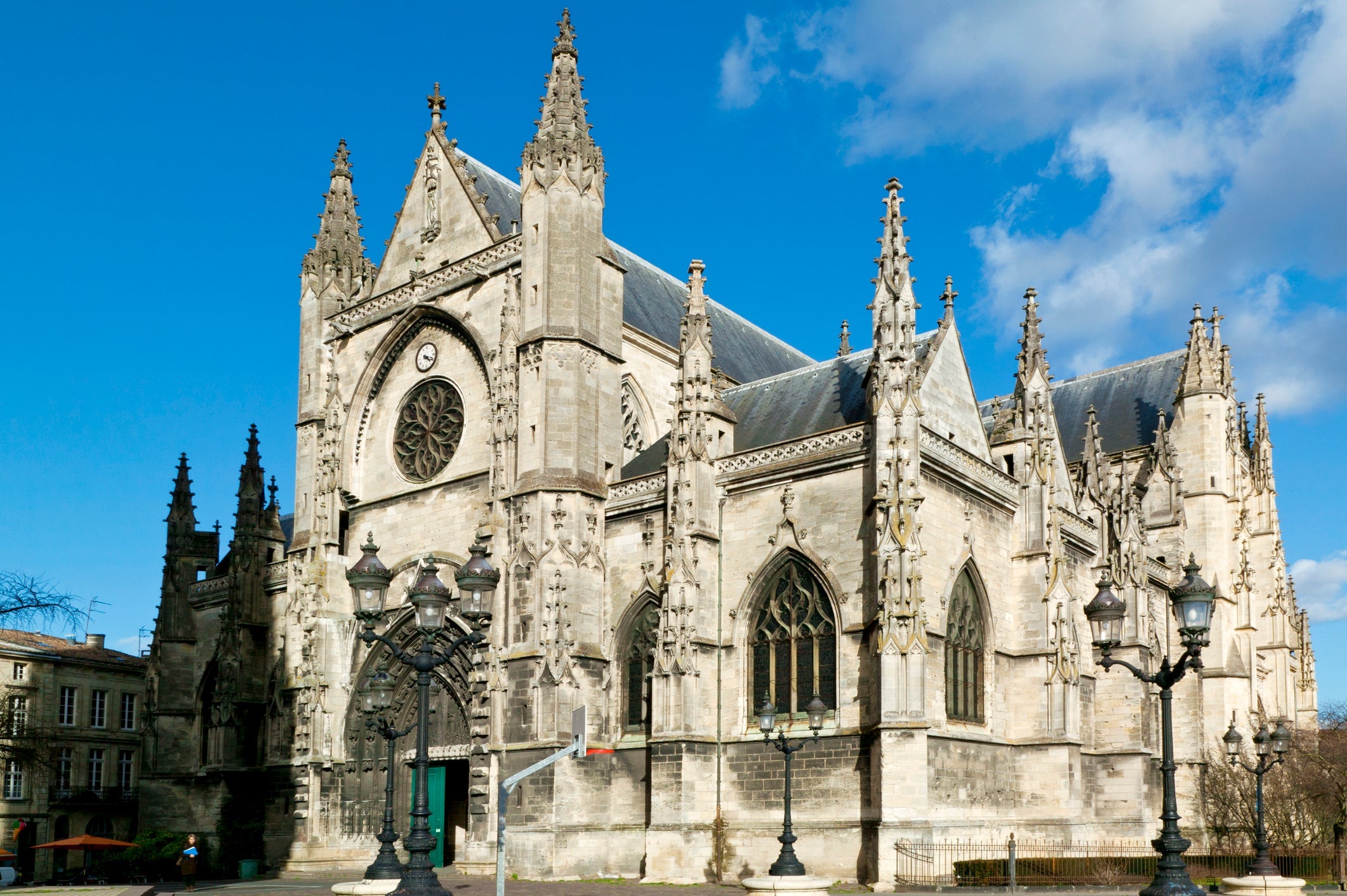
Keep an eye out for the few places left where you can see a newly cleaned building next to one still carbon-coated -- the difference is startling. The project resulted in the entire city center being designated a UNESCO World Heritage Site in 2008, the largest urban heritage site in the world.

Known as the Port of the Moon for its crescent-shaped layout, the heart of Bordeaux is a marvel of 18th-century urban planning, with its broad boulevards and enormous public squares radiating out from a bend in the slow-moving Garonne River. At the center of the arc is the splendid Place de la Bourse, a horseshoe-shaped row of imposing neoclassical buildings surrounding a splashing fountain. Across from it, the Mirroir d'Eau is the largest reflecting pool in the world; the shallow sheet of water has become a public playground, with kids splashing and teens taking selfies at all hours of the day and night.
Other highlights include the neoclassical Bordeaux Opera House, its columned facade lit up like a beacon at night, and more than a dozen spectacular churches dating back to the 10th century. But nothing compares to the Bordeaux Cathedral, a flamboyant extravaganza of crenelated buttresses and gloomy gargoyles, which many see as rivaling Notre Dame in its gothic splendor. (And with Notre Dame sadly damaged by last spring's fire, even more of a reason to visit.) Still older is the Medieval walled city, still visible in several turreted city gates such as the 15th-century La Grosse Cloche (the big bell).
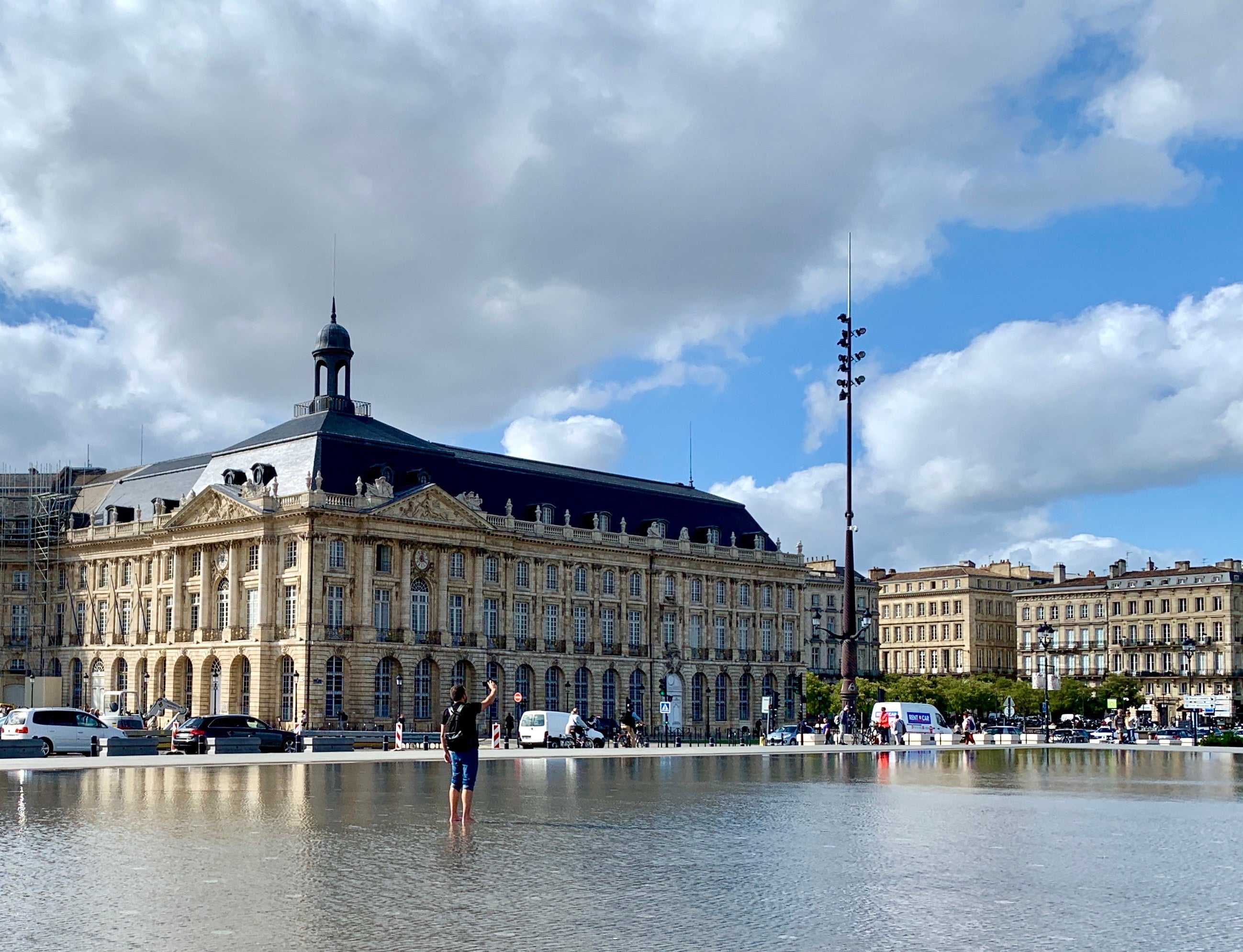
Bordeaux buzzes with new energy
Defined by its role as a bourgeois hub of trade and industry, Bordeaux long had a reputation for being stuffy and staid, even earning it the nickname the Sleeping Beauty. But two decades of renovation and revitalization have paid off with an entirely new energy.
Bordeaux's transformation extends to its once-industrial riverfront, where shipping piers and warehouses have been torn down to make way for an expansive promenade, with lush gardens, sunny lawns and a 35-mile-long paved bike and footpath. (It's great for strollers, too. Here are some of our favorite travel strollers and double strollers.)
Thanks to the new ease of train access, Parisians are moving south in record numbers, bringing with them their verve and sophistication -- along with quickly rising real estate prices and the associated grumbling from locals.
Home to four universities, Bordeaux is thick with students, who throng the cobblestone alleys and vine-hung squares of the Medieval old city, crowding into lively cafes where laughter and music ricochet off the walls until the early hours.
Wine bars, galleries and coffee houses line the Rue Notre Dame in the gentrifying arts district of Chartrons, where the Saturday market is a must for fresh produce, cheese, and baked goods.
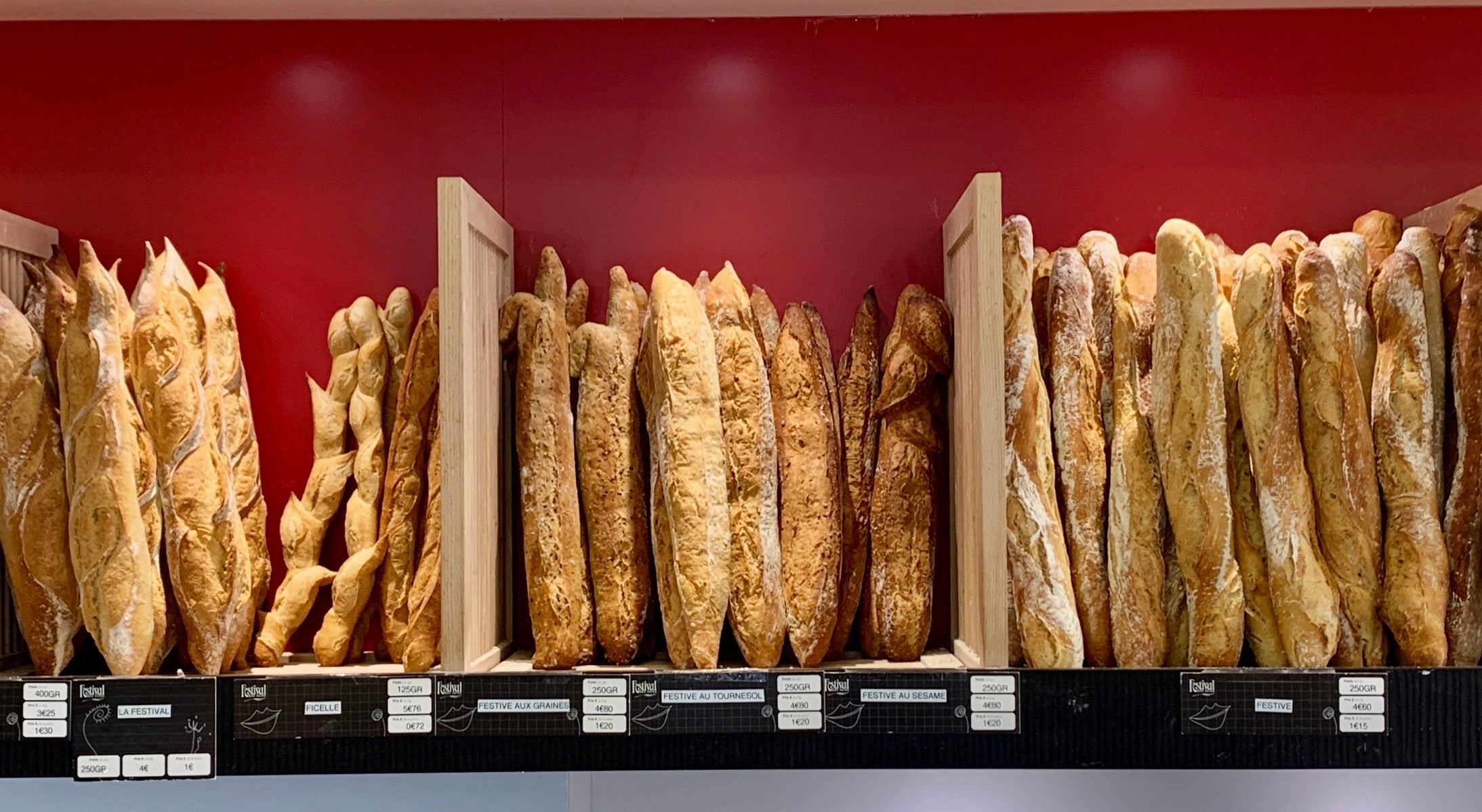
Bordeaux is the gateway to France's most famous wine country
Since the Romans first planted grapes here 2,000 years ago, wine has been at the root of Bordeaux's identity. Luckily, wine tasting is as easy to access here as everything else.
If, like me, you're not well-schooled in wine, don't worry. You will be after a visit to Bordeaux. Justifiably proud of its wines, which are considered among the best in the world, the Bordeaux region celebrates its role as a historical center of winemaking with wine-related activities designed to get you thinking -- and tasting -- like a wine expert in just a few hours.
I started my exploration at the Bordeaux Wine School, where I took its introductory class that had me describing soil types, topography, and other aspects of "terroir" and swirling my glass like a pro. Then there's Cité du Vin, the world's first interactive wine museum, which opened in 2017 to critical acclaim for its glimmering beehive-like modern design and high-tech interactive exhibits.
When you're ready to venture out to the wineries themselves, day trip tours are offered by numerous operators and organized by the Bordeaux Tourism Office, which will also help you plan an individual itinerary. Innovative energy prevails, with the up-and-coming generation of many of Bordeaux's best-known family winemaking dynasties experimenting with new varietals and catering to contemporary tastes and trends.
One of my favorites was Chateau Simon in the Graves region, just outside the adorable village of Barsac, where sisters Pauline and Anne-Laure are the sixth generation of the Dufour family to make wine. (As we passed through Barsac, I picked up some bread at Les Bles d'Or, where rows of baguettes sport names like La Festival and taste combinations like curry raisin pineapple enhanced with ancient grains.)
I also loved Domaine La Bastane, where owners Anaïs Bernard and Bastien Pestourie rent out rooms in a restored 16th-century manor house complete with a turret and invite guests to taste from wine tanks painted with murals. Chateau les Doms, where three generations of women have made wine together, has opened a friendly, informal tasting room in the kitchen of a centuries-old farmhouse.
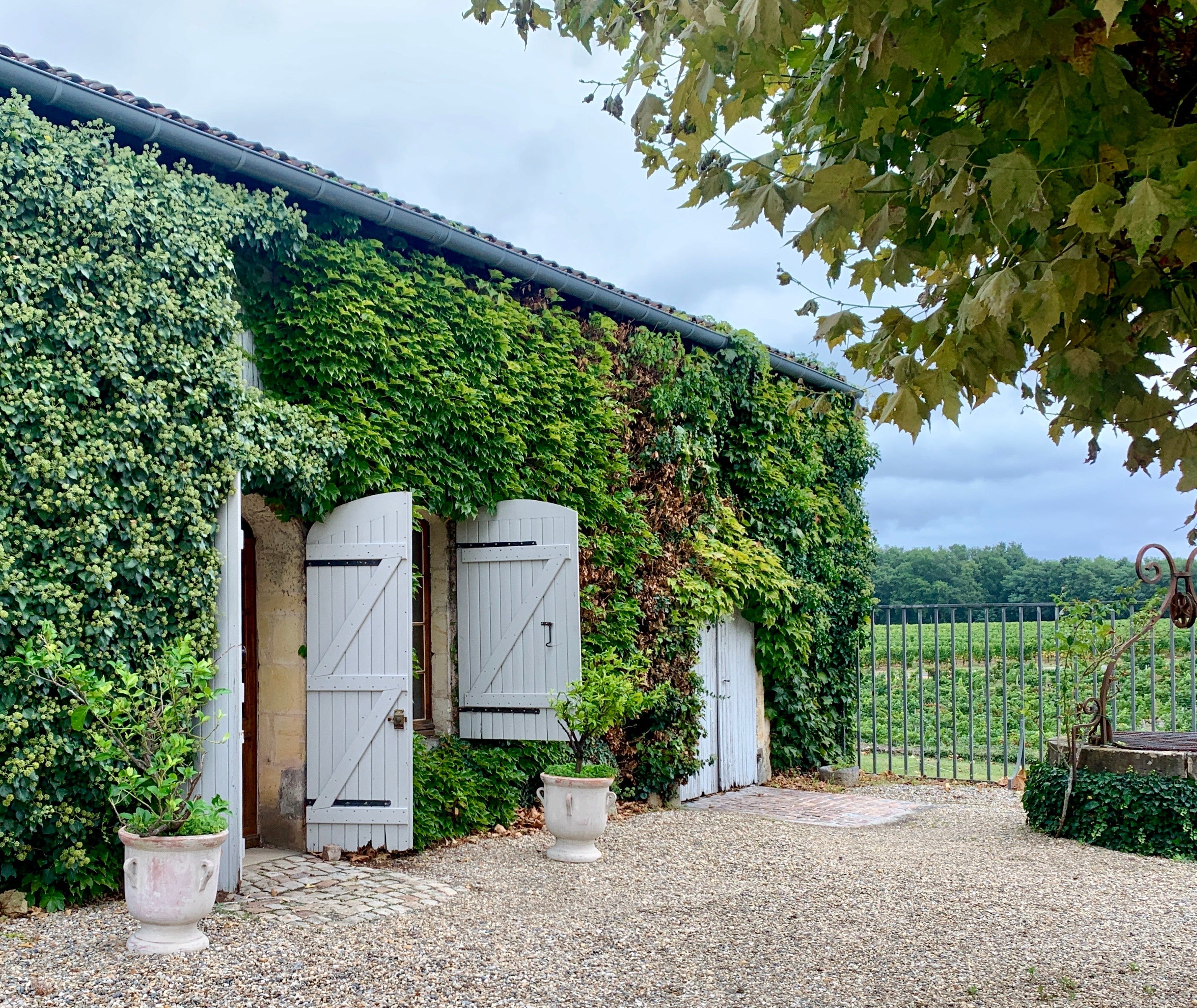
Bordeaux is perfect for all ages
While Bordeaux's appeal as the hub of France's most famous wine region is undisputed, there's plenty here for families, business travelers, millennials and others, and its a points traveler's budget-friendly paradise.
Bordeaux's groundbreaking natural history museum reopened in 2019 after a complete modernization and renovation that showcases its wildlife and biology collections, while the Cap science museum is a perennial favorite with kids who like hands-on tinkering. The Public Garden is ground zero for Bordeaux parents to gather at the end of the day and watch kids clamber on a towering model ship and feed the ducks in the pond. The towers of the Medieval walled city look just like castles -- and one, Porte Cailhau, even lets you ascend to the top, as does the cathedral's bell tower.
Even the Cité du Vin is extremely kid-friendly; the day I went strollers were everywhere and kids were immersed in activities like guessing aromas and stomping grapes.
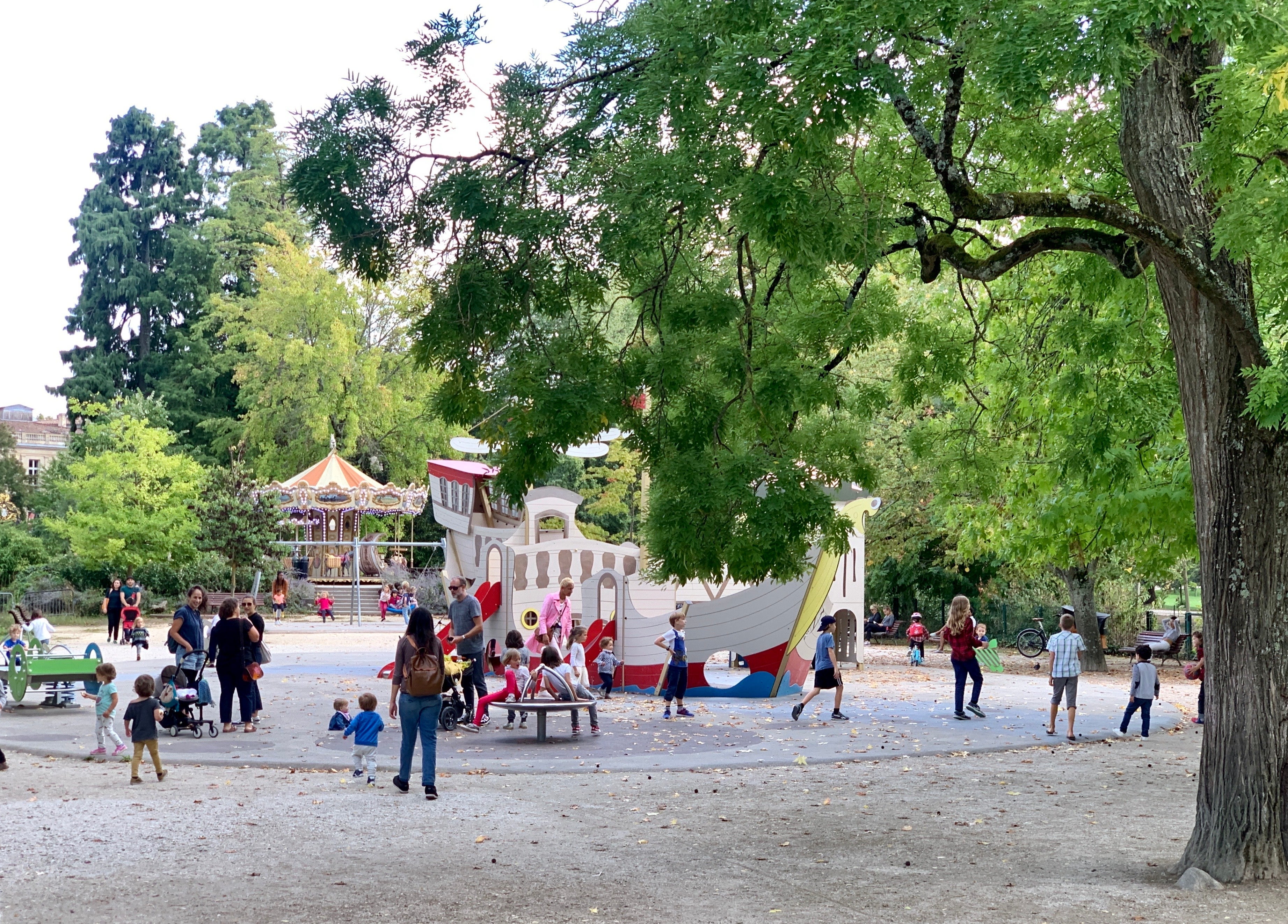
Bordeaux chefs are at the forefront of French cuisine
It only takes a meal or two in Bordeaux to realize that word of its rise as a foodie hot spot isn't misplaced. Surrounded by agriculture and with Archachon Bay just an hour away, Bordeaux's markets overflow with fresh ingredients for its chefs to experiment with, and the city's young population has led the way to introducing lighter, fresher takes on French cuisine. My top choices from a week spent eating around town were veggie-friendly Bô-Tannique, just off the upscale pedestrian street Rue Sainte-Catherine; Le Chien de Pavlov, a hip wine bar tucked into a 14th-century stone building in the old city; and Le 1925, styled after a 1920s speakeasy. (A plus is this glamorous spot's location, right across from the Monument aux Girondins, a fanciful fountain memorializing victims of the French Revolution located in the Place de Quincones, which is grandly lit up at night.)
There's classic cuisine as well, often served in the cafe-restaurants known as brasseries. For the full vibe, Brasserie l'Orléans serves classic dishes like escargots in garlic, rack of lamb and a potted foie gras in a brass-and-mirrored dining room popular for business lunches.
Maybe we just chose right, but dining out seemed to us to be more affordable in Bordeaux, with even uber-popular restaurants serving entrees in the $15 to $25 range. I paid for all meals with my Chase Sapphire Reserve, which pays 3x points for every dollar spent on dining.
Bordeaux is bursting with points-friendly accommodation
Like everything else in Bordeaux, hotel-building -- and rebuilding -- is booming, and loyalty programs will get you far here. The past two years alone saw the opening of several hotels, including:
- Radisson Blu Hotel, Bordeaux -- From 75k Radisson Rewards points per night
- Hilton Garden Bordeaux Centre -- From 26k–50k Hilton Honors points per night, or use a Free Weekend Reward
- Holiday Inn Bordeaux - Lormont -- From 20k IHG Rewards Club points
Marriott also has a new property in development.
Related: The best hotel credit cards
Best Western has three properties in Bordeaux, including a duo of historic mansions-turned-hotels in the central area known as the Golden Triangle. IHG's iconic InterContinental Bordeaux Le Grand Hotel (from 55k IHG Rewards Club points per night) occupies pride of place on the city's central plaza directly opposite the historic opera house, where its block-long outdoor cafe is the city's most popular meeting place.
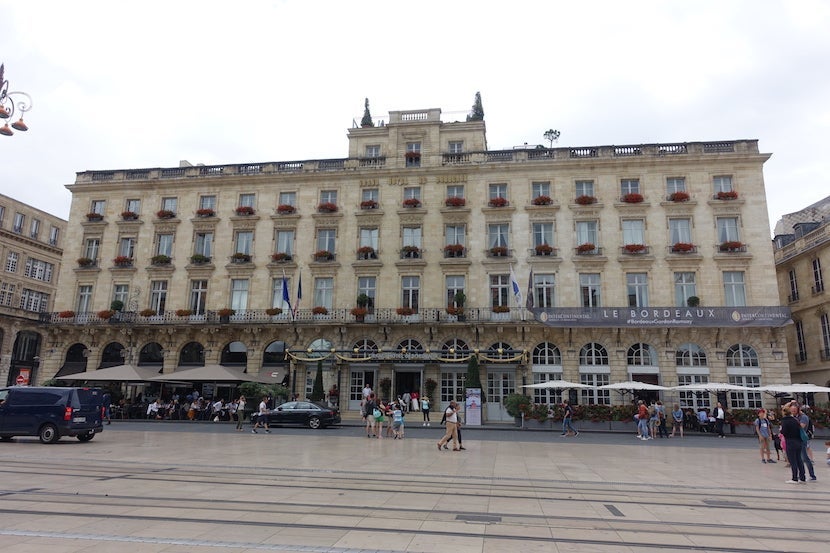
If you have access to Chase's travel portal with one of its Ultimate Rewards credit cards, like the Chase Sapphire Reserve, Chase Sapphire Preferred Card or Chase Freedom (No longer open to new applicants), you can also book Bordeaux hotels with your points (or pay with cash to earn more Ultimate Rewards points).
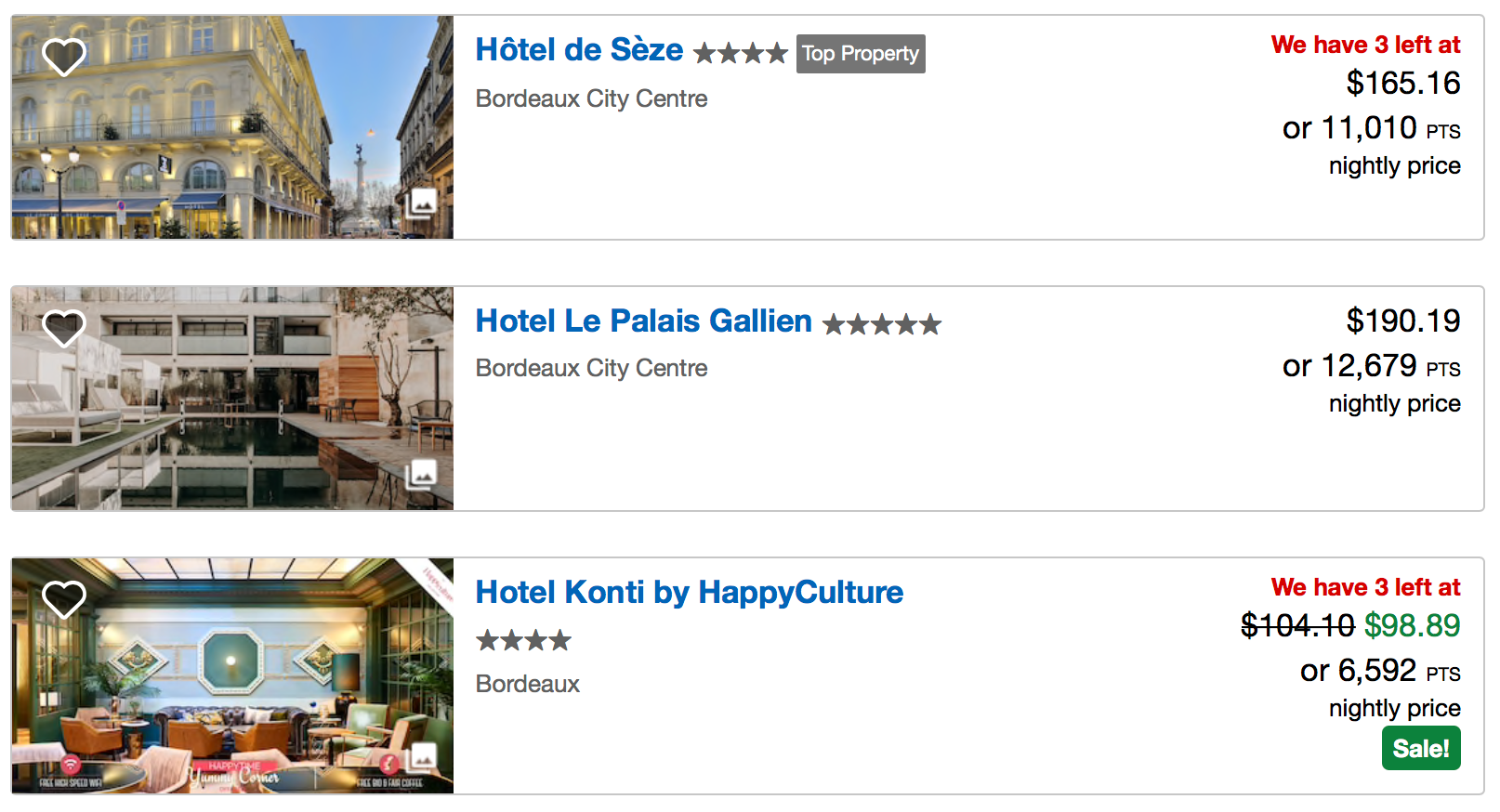
Bottom line
Paris is not the only city in France that's worth a visit. When planning your trip to Europe, consider the magic of Bordeaux. In fact, plan a points and miles trip that hits both Paris and Bordeaux. You won't be disappointed!
